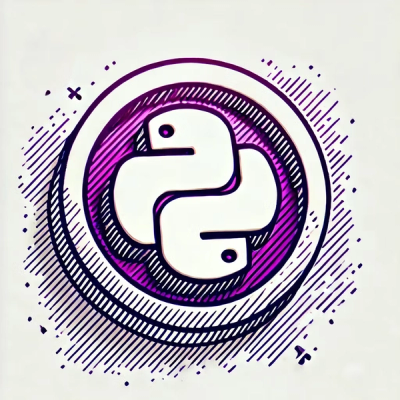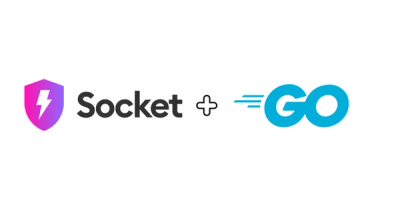
Research
npm Malware Targets Telegram Bot Developers with Persistent SSH Backdoors
Malicious npm packages posing as Telegram bot libraries install SSH backdoors and exfiltrate data from Linux developer machines.
@gasket/plugin-docs
Advanced tools
The plugin enables the docs command, which centralizes doc files for the app's plugins, presets, and supporting modules.
npm i @gasket/plugin-docs
Update your gasket file plugin configuration:
// gasket.js
+ import pluginDocs from '@gasket/plugin-docs';
export default makeGasket({
plugins: [
+ pluginDocs
]
});
To be set in under docs in the gasket.js.
outputDir - (string) Name of the directory, relative to the app's package,
where doc files will be collected to. Default is .docs.The docs command, inspired by cargo doc from the Rust language, allows app developers to generate documentation for their Gasket projects. Only those presets and plugins that are configured for a project, will be used to determine what documentation is available.
When running this command, markdown and other files will gathered from installed node modules and collated to the output directory when they can be viewed together.
The docs command will assemble configuration for plugins and modules, based
on available metadata, enabled by the @gasket/plugin-metadata.
By default, the files that are collated include a package's README.md and any
files that exist under a docs directory. Additionally, if any metadata defines
link, these files will be collected, too.
The docsSetup lifecycle allows plugin developers to tune the docsConfig that
is compile for their plugin. Files or file globs can be set, and links changed
as needed. Any lifecycle hooks should return a docsSetup object.
The defaults are an available option to reference.
/**
* @typedef {import('@gasket/plugin-docs').DocsSetup} DocsSetup
*/
export default {
name: 'example',
hooks: {
/**
* Tune the docsConfig that is compiled for a plugin
*
* @param {Gasket} gasket The Gasket API
* @param {Object} defaults The default docs setup config
* @returns {DocsSetup}
*/
async docsSetup(gasket, { defaults = {} }) {
return {
...defaults,
link: 'OTHER.md',
files: [
'API.md',
'docs/**/*.md'
],
transforms: [{
test: /\.md$/,
handler: content => content.replace('something', 'nothing')
}],
// collate docs for any supporting modules
modules: {
'@some/module': {
link: 'README.md'
},
'another-module': {
link: 'README.md#go-here',
files: ['html/**/*.html'],
transforms: [{
test: /\.html$/,
handler: content => content.replace(/everything/g, 'nothing')
}]
}
}
}
}
}
}
Transforms can also be added in the docsSetup lifecycle. These are plugins to adjust content for files that match the transform's test RegExp. By default, these will only affect docs collected the plugin's package. If the transform should be able affect all collected docs, the global property should be set to true.
Additional data is available to handlers to help with transformations which can
be read about in the docsTransformHandler API.
Beside docs for the plugin itself, docsSetup for supporting modules can also
be described. For modules from metadata, if a docsSetup is found, the files
described will be collected, and link for the generated index go to the link
specified in the docsSetup, instead of the module's homepage.
Alternatively, modules can described their own setup in their package.json by
defining a gasket.docsSetup property. However, Being JSON, transforms or other
setup functions cannot be described this way:
{
"name": "example",
"version": "1.2.3",
"gasket": {
"docsSetup": {
"link": "OTHER.md#go-here",
"files": [
"more-docs/**/*.*"
]
}
}
}
Allows a plugin to provide a view of the docs for the user.
import view from 'example-markdown-viewer';
export default {
name: 'example',
hooks: {
async docsView(gasket, docsConfigSet) {
const { docsRoot } = docsConfigSet;
await view(docsRoot);
}
}
}
The @gasket/plugin-docusaurus hooks this lifecycle, to render the docs using Docusaurus.
Allows a plugin to add documentation that has to be programmatically generated.
import { promises as fsPromises } from 'fs';
const { writeFile } = fsPromises;
export default {
name: 'questions',
hooks: {
async docsGenerate(gasket, docsConfigSet) {
await writeFile('FAQ.md', 'Just shoot me a call at (605) 475-6968');
return {
name: 'FAQ',
description: 'Frequently Asked Questions',
link: '/FAQ.md',
targetRoot: docsConfigSet.docsRoot
};
}
}
}
Presets can also set up custom docs. This is done by defining a docsSetup
property object on the module, which will be used to establish the docsConfig
for the preset.
// gasket-preset-example.js
export default {
name: 'gasket-preset-example',
docsSetup: {
link: 'OTHER.md#go-here',
files: ['more-docs/**/*.*'],
}
}
The docs command will gather info about plugins and modules from their
metadata and docsSetup, and will assemble a docsConfig for each. These
configs are are organized by type in a docsConfigSet, which is then used to
copy files to the outputDir, and perform any transforms as needed. An index is
generated in markdown from docsConfigSet which serves as the entry in the doc
files. If a plugin is installed that hooks the docsView lifecycle, it can
serve the content in a more viewable fashion for the user.
FAQs
Centralize doc files from plugins and modules
The npm package @gasket/plugin-docs receives a total of 66 weekly downloads. As such, @gasket/plugin-docs popularity was classified as not popular.
We found that @gasket/plugin-docs demonstrated a healthy version release cadence and project activity because the last version was released less than a year ago. It has 8 open source maintainers collaborating on the project.
Did you know?

Socket for GitHub automatically highlights issues in each pull request and monitors the health of all your open source dependencies. Discover the contents of your packages and block harmful activity before you install or update your dependencies.

Research
Malicious npm packages posing as Telegram bot libraries install SSH backdoors and exfiltrate data from Linux developer machines.

Security News
pip, PDM, pip-audit, and the packaging library are already adding support for Python’s new lock file format.

Product
Socket's Go support is now generally available, bringing automatic scanning and deep code analysis to all users with Go projects.